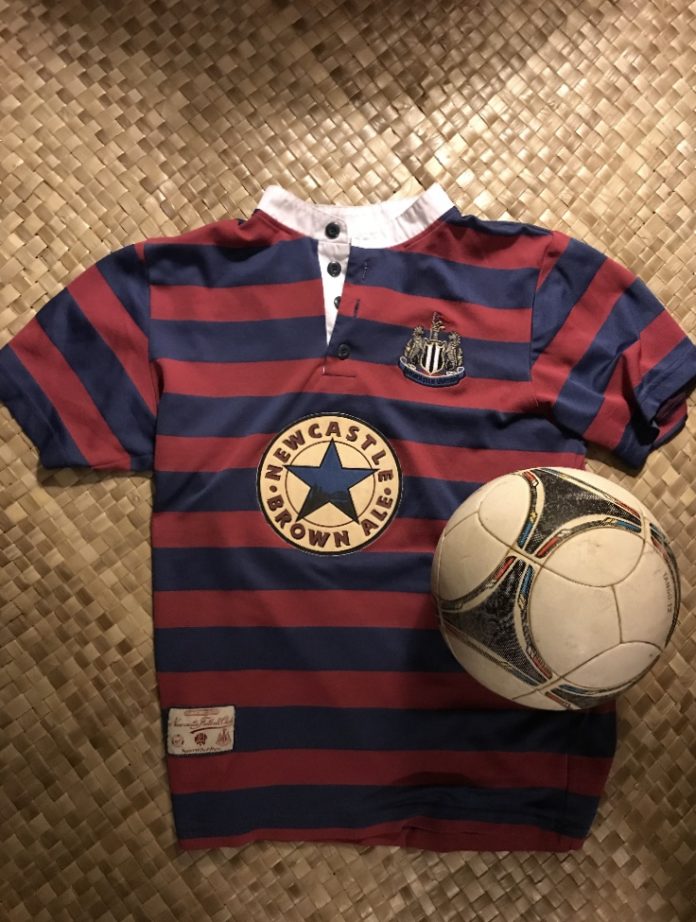When I was 7 years old, I watched the movie “Goal!” — a wish-it-was-true story in which a poor, undocumented teenager named Santiago Muñez is discovered by a scout while playing in an amateur league in Los Angeles. Muñez rises through hardship and becomes a star player in England for a team called Newcastle United. I’ve been a diehard Newcastle fan ever since.
Now, my favorite team is all over the news, even though they haven’t played in over a month, since the English Premier League suspended play March 13 due to the coronavirus.
The news is that Saudi Arabia’s sovereign wealth fund, worth about $320 billion dollars, is close to completing a deal to buy Newcastle.
I’m not happy about it.
The $370 million takeover would have a seemingly positive effect on Newcastle, which is a proud but long-suffering club. For the last 13 years that I’ve been a fan, a businessman named Mike Ashley has owned the team and systematically underfunded it. During Ashley’s tenure, they’ve mostly been a league bottom-feeder and have twice been relegated to England’s second division, a huge embarrassment for a historic team with such a large and passionate fanbase. The buyout would make Newcastle comfortably the richest team in England, and therefore one of the best — but it would do so with dirty money.
Saudi Arabia is notorious for undercutting freedom. In 2018, Saudi operatives secretly assassinated and dismembered journalist Jamal Khashoggi. The murder led to a government cover-up in order to protect Crown Prince Mohammed bin Salman from blame. Khashoggi was killed because he had critiqued Saudi human rights violations, including the arrest of women’s rights activist Loujain al-Hathloul — who remains in prison, being tortured. Al-Hathloul’s arrest was part of a large-scale Saudi crackdown on women’s rights advocates in 2018. As a journalist and feminist, it’s hard for me to imagine being happy about the Saudi government owning my team and using its success to distract from its own human rights violations.
There has been some backlash to the potential sale, but not enough. The U.K. director of Amnesty International wrote a letter to Richard Masters, the chief executive of the Premier League, saying, “Unless the Premier League pauses and looks seriously at the human rights situation in Saudi Arabia it risks becoming a patsy — a willing dupe of those trying to sportswash their abysmal human rights records.” Lawyers for Hatice Cengiz, Khashoggi’s fiancée, also wrote to Masters, pleading for the Premier League to reject the deal in order to avoid being complicit in the cover-up of Khashoggi’s murder. However, a recent survey of 3,000 Newcastle fans showed 96.7 percent were in support of the takeover.
Even if the club weren’t being bought out by an oppressive government, I would still have a sickly feeling about the club suddenly being the richest in the league. I’ve already seen what happens when billionaire owners buy middling Premier League teams; they bankroll them to domination. First, the team brings in a world-class manager. Then comes a series of wildly expensive transfers that replace local boys with international superstars. Throughout the process, the rest of the league looks on in disgust.
This is exactly what happened with Chelsea FC. Roman Abramovich, an Israeli-Russian investment shark who is the 113th richest person in the world and apparently the first person to recommend to then-Russian President Boris Yeltsin that Vladimir Putin be his successor, bought the London club in 2003. A year later, Chelsea won the league for the first time in 50 years. Then, led by world-class coaches like José Mourinho (“the special one”) and Antonio Conte, they won in 2006, 2010, 2015 and 2017.
It’s the same story with Manchester City, who have just won two consecutive league titles. Sheikh Mansour bin Zayed Al Nahyan, a member of the Abu Dhabi royal family and deputy prime minister of the United Arab Emirates, bought Manchester City in 2008 and has put $1.6 billion into the club. By buying one expensive superstar after another and becoming the most valuable club in Europe, Manchester City won the league four times in seven years (before 2012, they hadn’t won since 1968).
I’ve loved to hate these billionaire teams, proud to be a loyal fan of an honest club. I’ve stuck with Newcastle through thick and thin, always confident that one day they would be good again. I’ve woken up at 4 or 5 a.m. on many a Saturday just to watch them get humiliated by better teams.
As Newcastle competed against teams with names like Ipswich Town and Preston North End during its second bout in the country’s second division — the peculiarly-named English Football League Championship —I was dismayed to find out that I could rarely watch the games anymore: it was close to impossible to find streams online.
However, I kept up with the scores and was ecstatic when they won the Championship and were promoted to the Premier League. While watching a rare, laggy stream of Newcastle in the second division, I remember thinking, “One day, maybe 50 years from now, I’ll look back on this when they’re back to winning ways, and I’ll be happy that I supported them through everything.” In my head was a dreamy picture of a diamond-in-the-rough talent like Santiago Muñez leading Newcastle to glory.
Now, on the verge of a return to success, it feels way too soon. Not enough hard work has been done for my team to rise and win the league the right way, like minnows Leicester City did in 2016 with a glorious, shocking season.
I wanted Newcastle to beat Manchester City and Chelsea, not become them. So I guess you could say I’m in the 3 percent of Newcastle fans who are hoping the deal doesn’t go through.
Because blood money doesn’t buy Santiago Muñez.
Eliot Brody is a junior Urban and Environmental Policy (UEP) major. He can be reached at brodye@oxy.edu.
![]()































